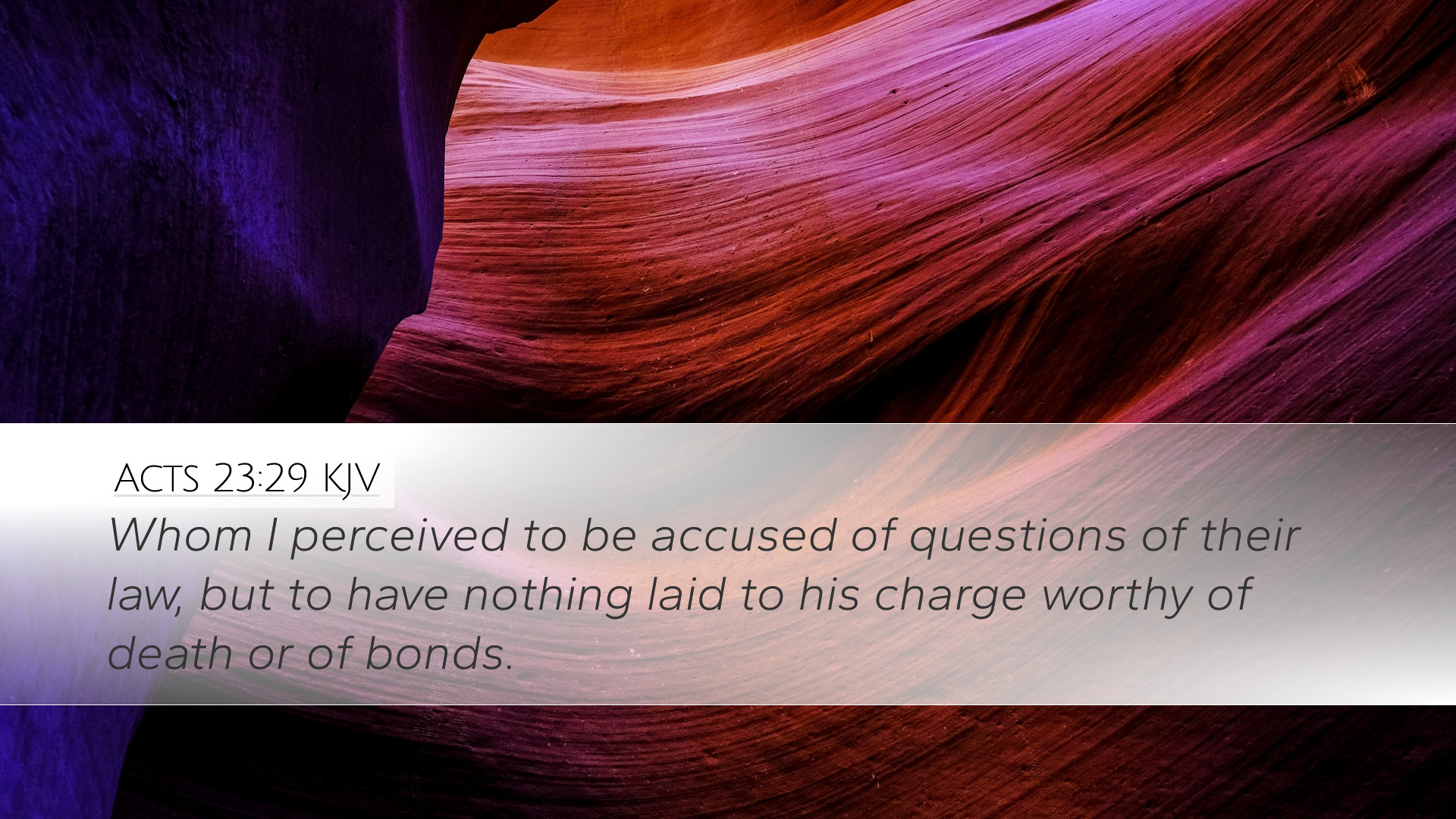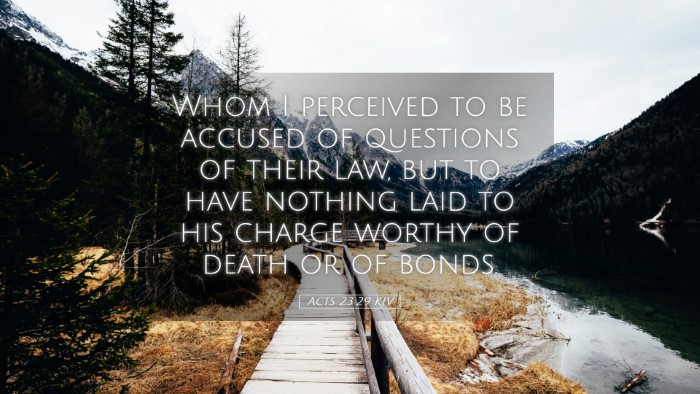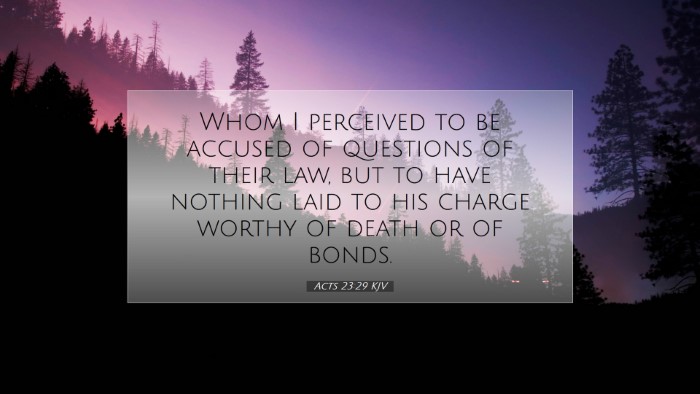Commentary on Acts 23:29
Acts 23:29 states, "Whom I perceived to be accused of questions of their law, but to have nothing laid to his charge worthy of death or of bonds." This verse is pivotal in understanding the legal and theological frameworks at play in the early Christian church, as well as the interactions between Paul and the Roman authorities.
Contextual Overview
The setting of Acts 23 is a significant moment in the life of the Apostle Paul. He stands trial before the Sanhedrin and later before Roman authorities. The charge against him involves disputes regarding Jewish law, which requires a keen understanding of both the Jewish legal system and Roman judicial practices.
Insights from Public Domain Commentaries
Matthew Henry's Commentary
Matthew Henry emphasizes the nature of the accusations brought against Paul, noting that they were fundamentally religious and involved interpretations of the Jewish law. Henry argues that the accusations were not based on any crime that Paul had committed against Roman law, but rather on theological debates that were divisive among the Jews.
- Paul's Innocence: Henry stresses that despite the severity of the situation, Paul was found innocent of any legitimate charges that could warrant punishment under Roman law.
- Judicial Procedures: The commentary highlights the Roman legal system’s higher standard for evidence compared to Jewish religious trials, which often relied on the passions and sectarian disputes among the Jews themselves.
Albert Barnes' Notes on the New Testament
Albert Barnes provides a detailed analysis of the social and political implications of this verse. He notes that Paul was caught at a critical juncture between two worlds—the Jewish culture that birthed his faith and the Roman authority that governed it.
- Question of Law: Barnes points out that the “questions of their law” refers to the theological disputes about the resurrection of the dead, an essential point of contention that divided the Pharisees and Sadducees. This division plays a crucial role in the defense of Paul.
- Implication of Charges: Barnes observes that there was no evidence to support accusations that could be deemed as criminal. He argues that this affirms Paul's position and the inadequacies of the charges against him.
Adam Clarke's Commentary
Adam Clarke offers further contextual elucidation, focusing on the nature of Paul’s defense in his situation before the governors and rulers. Clarke interprets the phrase "worthy of death or bonds" as indicative of the moral and legal failing of the accusers.
- Perception of Justice: Clarke emphasizes the importance of discernment in understanding the justice of the claims placed against Paul, recognizing that the Roman officials were not blinded by local religious sentiments.
- Political Dynamics: Clarke also addresses the broader political implications, suggesting that Paul stood at the intersection of Jewish nationalism and Roman authority, making his case emblematic of the tensions within the early church.
Theological Implications
This passage has profound implications for understanding Christian identity in relation to societal structures. It challenges believers to consider how faith intersects with legal and political realms.
- Faith and Law: The relational dynamics between faith and various laws highlight that true justice often transcends human legal systems, as seen through Paul’s unwavering stance despite facing dire consequences.
- Witness amidst Persecution: Paul’s experience is a testament to the call for believers to remain steadfast in their testimonies, regardless of the challenges posed by authority figures.
Conclusion
Acts 23:29 serves as an important reminder of the complexities that arise when faith interacts with the law. Drawing from the insights of commentators like Matthew Henry, Albert Barnes, and Adam Clarke, one can glean substantive understanding regarding early Christian challenges and the enduring principles of justice, faith, and integrity.
For pastors, students, theologians, and Bible scholars, this verse underscores the significance of remaining true to one’s convictions, even when faced with the scrutiny of the systems established by both religious and secular authorities.


